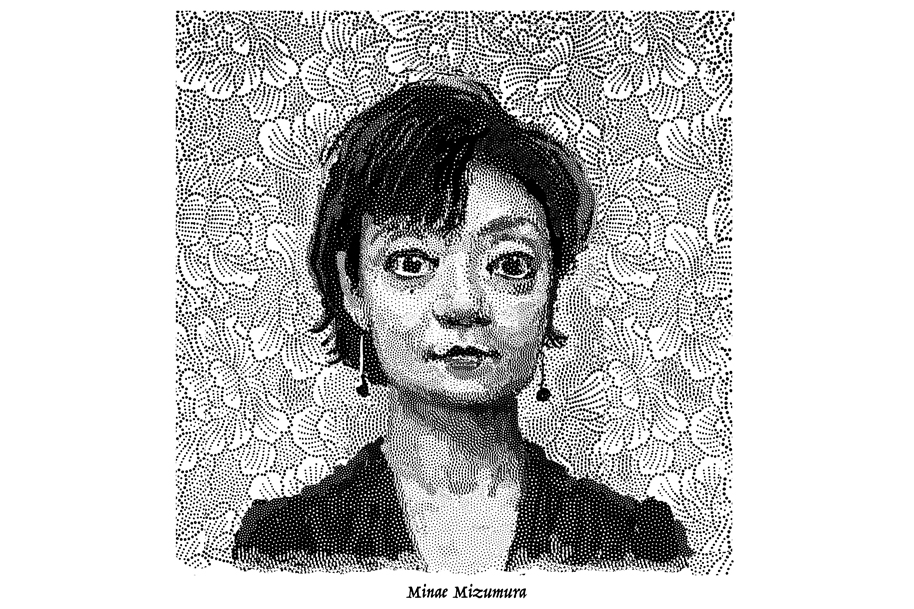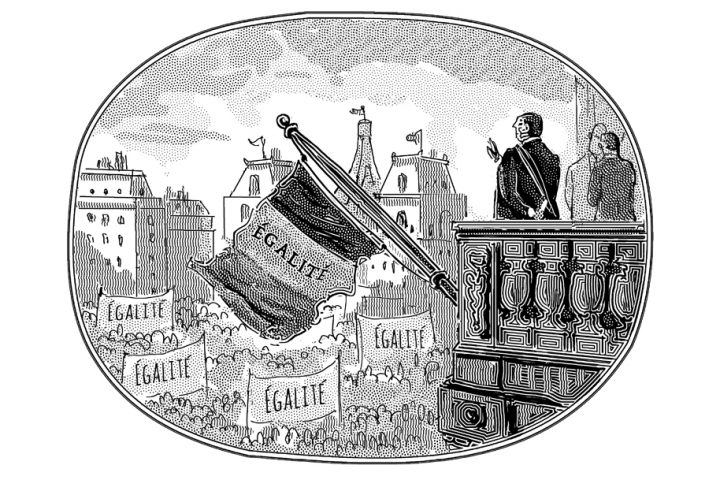Books Reviewed
When published in 2008, The Fall of Language in the Age of English created a sensation in Japan, winning awards, becoming a bestseller, and igniting a furious online debate between its detractors and defenders. This first book of nonfiction by Minae Mizumura, whose four novels have all won national awards, was published last year in a superbly readable English translation. This powerful, insightful work analyzes the predicament of world languages and literatures in an age when English has become the universal language of science and the default language of the internet. Even for creative writers, it is the virtually inescapable medium for those desiring to be taken seriously in an age of globalized discourse.
Mizumura’s wish that her work reach readers of English implicitly acknowledges the hegemony of English among world languages, all but certain to increase in coming years. That problem, in her view, relates to a second, the debasement of Japan’s language and literature. Mizumura offers a scathing critique of the official simplification of written Japanese, the decreasing language and literature instruction in Japan’s schools since 1945, and, partly as a result of both, the impoverishment of contemporary Japanese literature. The preface to the English version includes her appeal to Japanese educators, civil officials, writers, and intellectuals:
This book was written for those who, in moments of solitude, quietly worry about the future of Japanese literature and the Japanese language. It is for those who think that what is being written in Japanese today is ultimately of little relevance but who wish, with mingled despair and resignation, that at the very least more people would read Japanese literature written in those years when it was deserving of the name.
Those years, specifically, were 1868–1912: the Meiji era, during which Japan became the first non-Western nation to develop a modern national literature. The attainment of its global status was validated by Yasunari Kawabata’s Nobel Prize for Literature in 1968, citing his novels Snow Country, Thousand Cranes, and The Old Capital for their narrative mastery and sensibility in representing the Japanese mind.
* * *
What Mizumura calls “the miracle of modern Japanese literature” is intimately connected to her own development as a writer. Twelve years old in 1963, when her family moved to Long Island because of her father’s work as a Japanese businessman, the displaced young woman spent much of her childhood and adolescence immersed in a 63-volume set of modern Japanese literature, published in 1926, which the family had brought along. Rather than simply accommodating herself to American culture and language over the subsequent 20 years outside Japan, she filled and enriched her intellect and imagination with an earlier generation of Japanese writers’ works, which had transformed Japanese literature by adapting the modern Western novel to create uniquely Japanese forms and explore uniquely Japanese circumstances. Mizumura’s own rejection of English included majoring in French and pursuing a Ph.D. in French Literature at Yale before finally returning to Japan in the 1980s. In cultural and imaginative exile, her choice to dedicate herself to Japanese was the most important decision of her life: accounts of it take up the whole of her second novel and a long introductory section of her third, as well as much briefer personal reflections in The Fall of Language.
Yet she recounts that just when she seemed to have returned to Japan forever, a Tokyo palm reader’s prediction, “you have a strong tie to foreign countries…[that] will last all your life” proved to be uncannily true. Over the subsequent three decades, she has given readings in France and America, taught at Princeton, Michigan, and Stanford, finished her first novel in America, and was given the inspiration for her third by a Japanese visitor at Stanford. Mizumura relates her experiences among more than 20 other foreign writers during a University of Iowa International Writing Program, then offers a version of a scholarly talk on the “fall” of French in the age of English, which she gave during a Paris symposium—her only public address in her first professional language. The Japanese novelist connects with her French audience as they consider together the subordination of French and Japanese—her second professional language—to English.
Mizumura’s experiences thus ground the theoretical, historical, and autobiographical arguments that make up the book. Her experiences in Iowa with more than 20 “writers writing in their own language”—including literary artists from China and Korea, Norway and Lithuania, and a poet from Botswana who writes in English—were the origin of The Fall of Language, since they raised initial questions about the challenges facing local languages and literatures. But her awareness during a bleak Iowa autumn that the Japanese have been relatively “blessed” among non-Westerners to create a major world literature reminds her vaguely of a conversation about literature in Yiddish, a minor and virtually dead language, that took place after her talk in Paris.
* * *
Mizumura presents complex but marvelously lucid accounts of the role of Latin in the evolution of national languages in the West, and of the emergence of the 19th-century novel, a Western literary form conveying universal human knowledge through major national literatures. There were, she shows, analogous but distinctive developments in East Asia. Japan’s written language emerged from within the Chinese linguistic and literary universe. Japanese literature’s evolution within and beyond the Sinosphere culminated in the epochal challenge resulting from Japan’s sudden, transformative encounter with the West in the mid-19th century.
Scholar, translator, and novelist Natsume S?seki, something of an avatar of Mizumura herself, is the focus of her account of the Japanese literary response to the initial “shock of the West.” S?seki transmuted the opportunities and dangers of Western influence into Meiji Japan’s most distinguished literary and scholarly career. Analyzing the great literary heritage that Mizumura discovered in her early years affords her a vantage point for considering how both Japanese language and literature have fallen in the wake of the second great national shock, the loss of World War II and subsequent American occupation.
The Fall of Language in the Age of English concludes with somber reflections on the internet and the implications for national languages and literatures of hegemonic English, the world’s de facto universal language. But Mizumura also criticizes self-defeating public policies that have impoverished the Japanese language, and Japanese literary works that “often read like rehashes of American literature.” She calls for teaching more Japanese to younger students, and mandating that older ones read the full texts of Japanese modern classics.
She ends her rich, profound meditation on language and literature by encouraging people in English-speaking nations to consider the possibility that the advantage of fluency in our age’s universal language can also be a disadvantage:
If more English native speakers walked through the doors of other languages, they would discover undreamed-of landscapes. Perhaps some of them might then begin to think that the truly blessed are not they themselves, but those who are eternally condemned to reflect on language, eternally condemned to marvel at the richness of the world.



